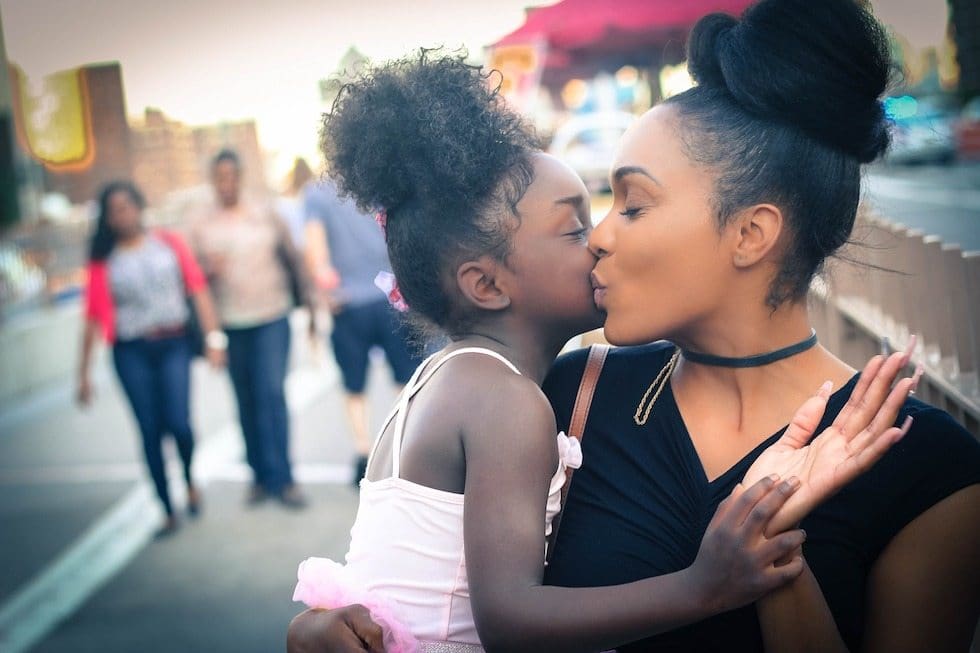
There is no such thing as a perfect parent. So just be a real one. ~ Sue Atkins
Parenting can be the most humbling and gratifying experience that one can have but no one ever said it is easy. It definitely has its ups and downs even in this age of modern conveniences and technology. With there being approximately 74 million children under the age of 18 in the U.S.1, there’s a chance that many adults play some type of parental figure in a child’s life. Despite all of the good intentions we may have as moms and dads parenting can become overwhelming and we can easily dismiss what we’re doing right. Developing fundamental parenting skills is a key component of nurturing a healthy child. Here are a few good rules to establishing a strong foundation for parenting:
- Be loving. In all that you do as a parent, show love to your child. As a parent your patience will undoubtedly be tested; however, being loving to your child outweighs the “in the moment frustrations.” Your unconditional parental love helps your child to be comforted, feel safe, and build confidence as they grow. At each developmental stage, be willing to move beyond your comfort zone to help lay the foundation for them to be the best person they can become.
- Be a good example. The expression, “do as I say, not as I do” is not a proven method of positive parenting. Children tend to do what they see and hear; therefore, it’s imperative for parents to model behavior that they want to see their child display at home and in their communities. Identify the values you want to teach your child and make sure to model those values because your little one will be watching you.
- Be flexible with your parenting skills. As much as we would like, our kids do not stay in the cute and adorable infant stage. As nature would have it, they’ll grow through developmental stages in which parents should be mindful of their parenting skills. Don’t just rely on your own upbringing to raise your child, be empowered by educating yourself on the developmental stages of childhood as well as the best practices to use during those times and adjust according to suit your child. Being able to adjust your parenting skills as your child grows can help both you and them to have a healthier relationship with one another.
- Be consistent. It is important to set limits and establish rules early on in your child’s growth. Once limits and rules are in place make every effort to be consistent with carrying them out, otherwise, patterns of unpredictability will only confuse your child and eventually undermine your authority as a parent which can later lead to unwanted power struggles.
- Be connected by disconnecting. Modern technologies, in particular, social technologies provide us with many ways to communicate and stay connected with one another 24/7. This can be a help and a hindrance to parents when it comes to staying engaged with our children. On one hand, it can help us know where they are, communicate important information, used as entertainment, and so on. On the other hand, as we feel connected through technology, we can also be socially disconnected as well. Television, social media, cell phones, and other handheld devices can become a distraction in such ways that it’s easier to replace authentic interactions with our children make efforts to use these devices creatively in which the family can be a part of it together. Re-evaluate priorities to make sure you are connected with your child by having family time without distractions of tv and other technology, knowing who your child’s friends are as well as their parents, show up to their leisure and school activities, and just be present and active in their lives as much as possible.
- Be resilient. Parenting can definitely come with its challenges. Make sure to take care of yourself as you take care of your family needs. Carve out time for yourselves as parents and lean on your support systems when you need a break. In doing so, you help to prepare yourself to go the distance when challenges do occur in your household. Whether you are in a two-parent home, single parent, foster parenting, guardians, etc., reach out for support when it seems overwhelming, or when you just want advice, or to just share your stories, remember you do not have to go at it alone.
by Dr. Jeana Stevenson, EdD., LPC-MHSP-S, NCC
1United States Census Bureau. (2016). The majority of children live with two parents, Census Bureau Reports (Census Release No. CB16-192). Washington, DC: U.S. Government Printing Office.
